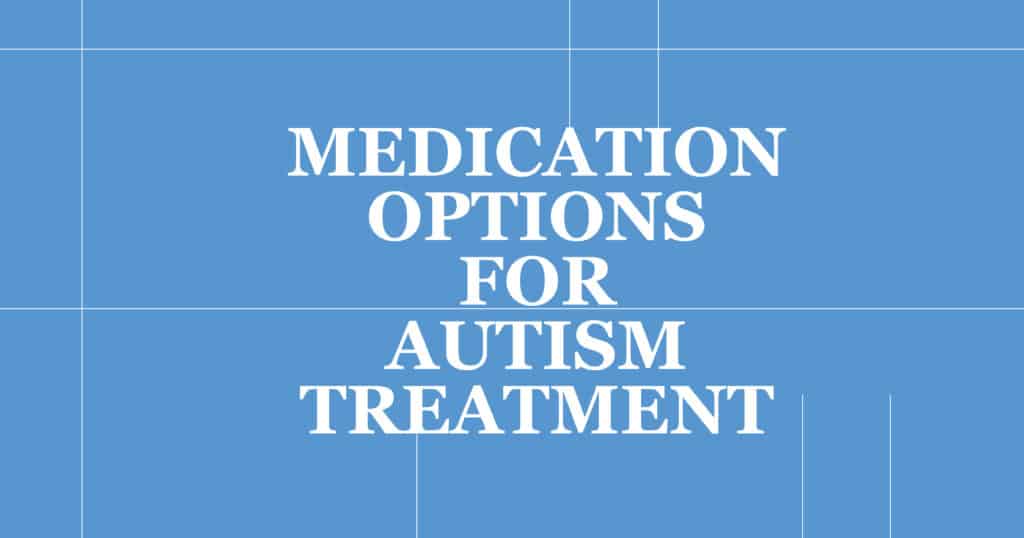While you cannot cure autism, there are ways for you to ensure it does not prevent you from enjoying life to the fullest. If you or someone you are close to has autism spectrum disorder, you must have looked into the options you may have to cope with the manifestations of this condition.
Is there medication for autism? And what do the latest studies say about autism? Let us explore the therapeutic approaches available to people nowadays and learn more about the resources autistic individuals can access.
Understanding Autism and Medication Needs
Autism spectrum disorder refers to a developmental and neurological disorder that affects the way an individual experiences and interacts with the world around them. The symptoms of this condition can be quite overwhelming for a person which is why mental health specialists will advise their patients to consider medication management to cope with specific symptoms that accompany autism such as aggression or anxiety disorder.
Common Symptoms Targeted by Medications
Medication is prescribed to people diagnosed with autism to help them deal with anxiety, aggression, impulsivity, hyperactivity, sleep issues, and depression. The right prescription drug will help the person manage their repetitive behaviors, mood fluctuations, and irritability.
Types of Autism Medication
Is there medication for autism? While you cannot cure autism, there are certain prescription drugs approved by the Food and Drug Administration that can alleviate the symptoms of autism in addition to manifestations of other mental health problems:
| Medication | Description |
| Stimulants | Ritalin can be a great solution for people who cannot control their hyperactivity and struggle to focus |
| Antipsychotics | Aripiprazole and Risperidone can help patients who get easily irritated or exhibit aggressiveness |
| Selective Serotonin Re-Uptake Inhibitors (SSRIs) | SSRIs like Zoloft and Prozac will lessen anxiety, improve eye contact, and reduce the intensity of various repetitive behaviors |
| Anticonvulsants | Drugs like Carbamazepine and Lamotrigine have shown promising results for both seizure control and behavioral issues |
Autism Therapy Alternatives to Medication
While a mental health professional will tell you what kind of treatment can yield the best results in your particular case, there is an opportunity to improve communication and behavior with alternative therapeutic options:
| Therapy Alternative | Description |
| Music Therapy | Both verbal and non-verbal communication skills can be stimulated through vocalization, playing instruments, dancing, and various rhythmic movements |
| Nutritional Therapy | You can improve your nutritional status and resolve nutritional deficiencies with the help of a personalized nutrition plan, supplementation, and dietary interventions |
| Occupational Therapy | This form of therapy will address the autistic person’s inability to participate in everyday activities and enhance their quality of life if they struggle with social interaction, learning, and self-care |
| Hippotherapy | Equine therapy will improve the strength, motor coordination, and balance of an autistic person as well as help them with their social skills |
| Manual Therapy | If there are various restrictions in your muscles and fascia and musculoskeletal issues, they may worsen your developmental and neurological symptoms which is why manual manipulation is a popular therapeutic approach |
| Acupuncture | This unconventional method of treatment can reduce your stress and anxiety, contribute to improved mood, increase emotional balance, and fix your sleep |
| Yoga and Massage | Regular massage appointments and yoga practice can be very beneficial to autistic people of all ages – they help with emotional regulation, enhance body awareness, and promote relaxation |
Behavioral and Social Interventions
In order to reduce challenging behaviors and enhance overall functioning, patients with autism are encouraged to try behavioral and social interventions. Once again, it is up to you and your therapist to figure out the right direction – some people benefit from cognitive behavioral therapy which addreses their emotional difficulties, others need to try applied behavior analysis to increase helpful behaviors and the decrease harmful ones, and many young patients are able to enhance their social skills and communication abilities with the assistance of early intensive behavioral intervention.

Managing Autism Symptoms With Medications
Is there medication for autism that suits every patient without exception? When a doctor prescribes a certain prescription drug to a patient with ADHD, they need to be sure this medication targets a particular symptom. The medication choices are always individualized so it will be up to a medical provider to pick prescription drugs that can resolve the emotional and behavioral problems of the patient.
Role of Healthcare Professionals in Autism Care
Since autism is often diagnosed very early and it frequently requires the adjustment of symptom management as the person gets older, autism healthcare professionals play a major role in the lives of their patients. From educating parents who want to ensure their children get the best medical care to advocating for the needs of autistic people within an imperfect healthcare system – pediatricians and primary care physicians will evaluate patients, recognize the underlying medical issues of physical or mental nature, and provide you with customized support that takes your needs and preferences into account.
Latest Advances in Autism Medical Research
Latest medical research focused on autism spectrum disorder continues to explore the neurological and genetic aspects of the condition and the role of environmental factors. Nowadays, people diagnosed with autism have more chances of getting the right treatment with the ongoing development of virtual therapy designed for autistic individuals and the rise of technology that helps them in various domains of life.
There are numerous studies launched to figure out how modern interventions and treatments are utilized so that therapists and psychiatrists can adjust their approach and build a meaningful connection with every patient. Additionally, researchers are focusing more on individuals who are non-verbal and people who belong to the LGBTQ+ community.
Accessing Autism Support Resources
Autism support comes in different shapes and forms – from a local group of people with the same symptoms who gather to discuss their experiences to networks and charities that work all over the country.
It is up to you to decide how you want to proceed to obtain the help you need for yourself or your child but it is advised to start with local support groups and social media forums where people talk about their personal experiences with ADHD and provide reassurance and comfort to those who may be less educated in regard to this condition.
You can also reach out to the autism charity whose mission statement resonates with you to learn how they advocate for individuals with autism and what kind of tangible support you may expect from them.
Discover Support With Hillside Horizon for Teens
Whether you suspect you have autism and want to confirm the presence of this neurodevelopmental condition or your goal is to improve your communication skills and overall quality of life, it would benefit you to discuss autism treatment options with a mental health specialist.
Our team at Hillside Horizon for Teens is ready to provide you with direction and motivation through personalized guidance and support no matter how challenging autism may be for you. Reach out to us without hesitation – together we can foster personal growth and transformation you have been seeking.

FAQs
What are the different types of medication used for autism symptom management?
Your healthcare provider will recommend medication based on your medical history and symptoms; in most instances, autistic individuals are prescribed antipsychotics, stimulants, SSRIs, and anticonvulsants to target particular symptoms such as aggression, hyperactivity, anxiety, or seizures.
How can therapy alternatives complement autism medication types in treatment plans?
If your form of autism is not too severe, you may get rid of certain symptoms with the help of a therapy modality or skills training. Relying on medication is a good idea but thousands of people all over the world got much better with educational programs, holistic therapies, and private conversations with therapists so you should combine therapy and medication to improve your emotional well-being.
What role do healthcare professionals play in developing autism behavioral interventions?
An experienced mental health specialist will be able to teach their patient new skills and address challenging behaviors that impact their personal and professional life. An autistic person can definitely benefit from behavioral therapy and social skills training as long as they manage to connect with a therapist.
How is ongoing autism medical research influencing current treatment options?
Lately, the treatment of autism has been tailored to a specific genetic profile of an individual which makes the therapy more effective. Robotics technology works great when a patient needs social interaction and education, and pharmaceutical companies continue to work on prescription drugs that will alleviate the most severe symptoms without the need for prolonged therapy.
Where can families find reliable autism support resources for managing symptoms?
In general, you can trust a major organization such as the Autism Society or the National Autistic Society if you are looking for autism services and resources available in your location. Still, in order to deal with your day-to-day problems, finding a local support group and connecting with people who go through the same challenges as you is arguably the best way to get the practical advice and emotional support you currently require.




